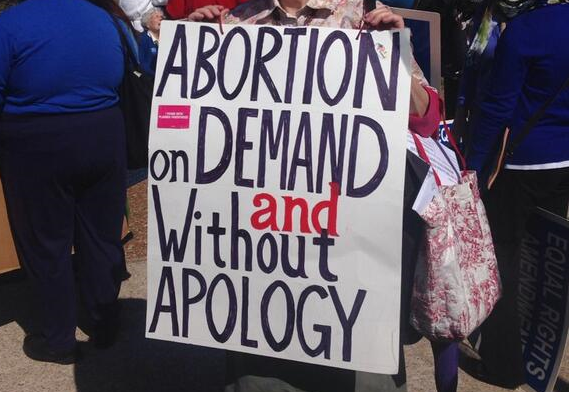Colorado Democrat lawmakers rejected three pro-life bills this week that would have protected unborn babies and mothers.
The Gazette reports Democrats, who control the state legislature by a strong majority, voted against all three bills in 4-7 party-line votes.
Two of the bills, the Protect Human Life at Conception Act (House Bill 1047) and the Abolishing Abortion in Colorado Act (House Bill 1079), would have banned the killing of unborn babies in abortions for basically any reason, according to the Denver Post.
These bills would have saved thousands of unborn babies’ lives each year – including viable, late-term unborn babies. In 2017, the latest data available, 12,390 abortions were done in Colorado, according to the Guttmacher Institute.
Please follow LifeNews.com on Gab for the latest pro-life news and info, free from social media censorship.
The third bill, House Bill 1075, sponsored by state Rep. Stephanie Luck, R-Penrose, would have required abortionists to submit abortion data to the state health department for an annual report, as most other states already do.
Luck said the requirement is far from “outrageous” or “crazy” because the state already collects health data about many different things, according to the Gazette.
“It’s actually just an extension of what we’re already doing,” she said.
Dr. Catherine J. Wheeler, an OB-GYN from Divide, testified in support of the legislation, saying data collection is a common and important practice in her work.
In a piece at Colorado Politics, Wheeler quoted the American College of Obstetricians and Gynecologists, a pro-abortion organization, which says collecting health data improves the “quality (of medical care), access to care, racial, ethnic, and socioeconomic disparities on maternal and infant health care.”
But Democrat lawmakers and abortion activists portrayed the bill as an invasion of privacy.
Selena Najar of the pro-abortion group COBALT blasted the legislation, claiming the real goal is “discouraging anyone from seeking abortion care for fear of being interrogated about the deeply personal reasons they are seeking care,” according to the report.
Even The Denver Post showed its bias when its reporter claimed the bill would have “coerced doctors into reporting” abortion data to the state.
Here’s more from the Post:
“Patients have a right to expect privacy and confidentiality when they are seeking medical care,” state Rep. Emily Sirota, D-Denver, said. “It is not the government’s job to interfere with the doctor-patient relationship with three pages of intrusive and judgmental questions.” …
Luck said she didn’t have any intention for people seeking abortions to feel shamed or intimidated. She argued medical professionals already report sensitive, anonymous information and she wanted to make abortion data more uniform.
“If we change the name of this bill, to basically any other piece of data, would you have an objection?” Luck asked. “If you wouldn’t have an objection then is it more about this larger abortion conversation than about the data itself?”
Wheeler said data collection would help the state to better understand the needs of women and to craft policies to help them. She mentioned sex trafficking and abuse as examples.
“How can we identify and help these women? We start by requiring abortion providers to inquire about the circumstances that have led the women to seek an abortion, which is part of HB22-1075,” she said.
Democrat lawmakers rejected the bill anyway.
Colorado is very liberal politically, and pro-life advocates have had a difficult time passing any pro-life laws there. Even fetal homicide laws to punish criminals who kill unborn babies in situations unrelated to abortion have been rejected repeatedly by the state legislature.
Colorado is one of the few states with no limits on abortions, and abortionists there openly advertise abortions in the third trimester.
In 2020, state voters rejected a ballot measure that would have protected viable, pain-capable unborn babies by banning late-term abortions after 22 weeks of pregnancy.








